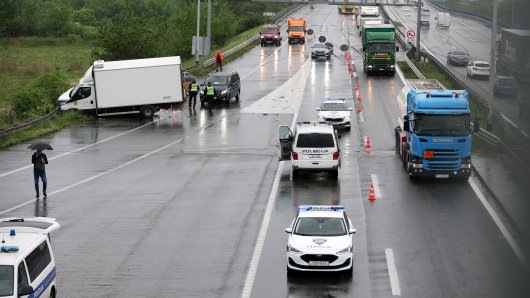Croatia has made important progress since its independence, however, solving serious human rights issues caused by the 1991-1995 war still requires further determination, said the Council of Europe Commissioner for Human Rights, Thomas Hammarberg, presenting his report on the country on Thursday.
Following Hammarberg's visit to Croatia in April, the report sets out recommendations about human rights of displaced persons and asylum seekers, proceedings relating to post-war justice, and the situation of Roma.
The Commissioner underlines the fundamental right of all displaced persons to voluntary return in safety and dignity. He highlights the urgent need to demine the parts of Croatia's territory still contaminated and to provide just and sustainable solutions to forced displacement.
"Particular attention should be paid to the right of former occupancy/tenancy right holders, including those who either do not wish to or cannot return to Croatia. Lost or damaged property and the rights of displaced persons in this regard need to be dealt with promptly. Just solutions must be found also for displaced persons who need to convalidate pensionable years worked in areas not under government control," reads the report.
Welcoming measures taken to enhance refugee protection, the Commissioner calls for further improvements in asylum law and practice, in particular by ensuring free legal aid in first instance proceedings and allowing interviews in the accelerated procedures.
"Specific care should be given to vulnerable groups of migrants, such as victims of torture and ill-treatment, victims of trafficking, and unaccompanied or separated children. A permanent reception centre for asylum seekers should be established to strengthen current limited capacities."
The Commissioner encourages further efforts to effectively investigate the atrocities. "Victims should enjoy full access to justice and effective domestic remedies, including reparation."
He welcomes the openness and determination shown by the authorities in this regard and urges them to strengthen their co-operation with the International Criminal Tribunal for the former Yugoslavia.
Furthermore, underlining the importance of impartial history teaching for post-conflict countries, the Commissioner encourages Croatia to strengthen the cooperation with neighbouring countries to enhance reconciliation and social cohesion.
Commissioner Hammarberg stresses that further action is needed to increase Roma representation in political life, public administration and the judiciary, as well as to better education, employment and housing. He urges the Croatian authorities to take additional measures to facilitate Roma access to citizenship, especially for children, and to reinforce free legal aid for the regularisation of their legal status.
Finally, whilst acknowledging the positive developments regarding anti-discrimination and anti-hate crime legislation, the Commissioner remains concerned about the persistence of anti-Roma manifestations, including violence, and recommends correcting the failures of the justice system and ensuring effective investigations.

































